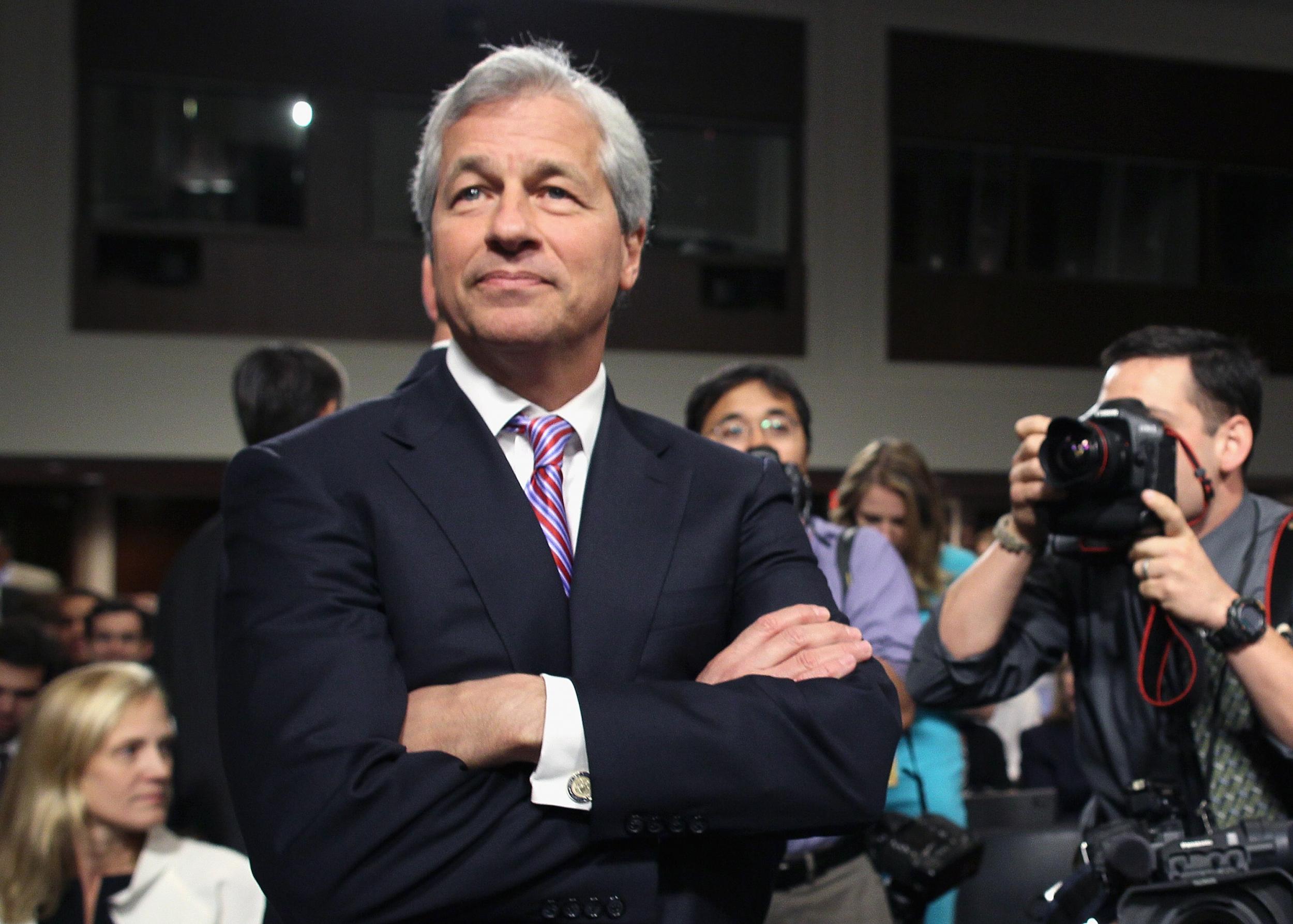Have America's corporate titans really abandoned capitalism red in tooth and claw?
A group of 180 have signed up to a "statement of common purpose" that promises to consider the interests of "all stakeholders" rather than just shareholders. But does it mean anything?

Your support helps us to tell the story
From reproductive rights to climate change to Big Tech, The Independent is on the ground when the story is developing. Whether it's investigating the financials of Elon Musk's pro-Trump PAC or producing our latest documentary, 'The A Word', which shines a light on the American women fighting for reproductive rights, we know how important it is to parse out the facts from the messaging.
At such a critical moment in US history, we need reporters on the ground. Your donation allows us to keep sending journalists to speak to both sides of the story.
The Independent is trusted by Americans across the entire political spectrum. And unlike many other quality news outlets, we choose not to lock Americans out of our reporting and analysis with paywalls. We believe quality journalism should be available to everyone, paid for by those who can afford it.
Your support makes all the difference.Th end of capitalism red in tooth and claw?
The wielders of the claws, America’s top CEOS, now say that they want to do cuddles.
As such they’ve signed up to up to a “statement of corporate purpose”.
This, we are told, commits them to leading their companies “for the benefit of all stakeholders – customers, employees, suppliers, communities and shareholders” rather than just the latter together with the whims of Wall Street and its obsession with quarterly earnings.
“Each of our stakeholders is essential,” the declaration concludes. “We commit to deliver value to all of them, for the future success of our companies, our communities and our country.”
“The American dream is alive, but fraying,” said Jamie Dimon, boss of JP Morgan Chase, and chairman of America's Business Roundtable, which came up with the declaration.
He went on to gush about major employers “investing in their workers and communities because they know it is the only way to be successful over the long term” while hailing the declaration’s principles as reflecting “the business community’s unwavering commitment to continue to push for an economy that serves all Americans”.
Largely symbolic, said the reports that followed. But important too.
Those terms might look, well, mutually exclusive but let’s run with it for a bit.
In theory the statement ought to matter. The guiding principle that US companies have for decades operated under was defined by the Nobel Prize winning economist Milton Friedman, who stated that the “social responsibility of business is to increase its profits” nothing more, nothing less.
That this has led us into a mess is a view opposed only by those on some of the wackier right wing shores where Friedman holds the status of religious icon.
I discussed how his views have been looking increasingly questionable in an essay for Independent Minds a while back.
Does this declaration mean that America’s corporate titans have come around to that view too? Have they undergone a Damascene conversation?
To quote the immortal Public Enemy, don’t believe the hype.
There has been scant sign of these leopards changing their spots in the run up to the release of this declaration. What we have seen, however, is a notable move by the Democratic Party, and especially its progressive wing, together with a shift in public sentiment.
The likes of Sentators Elizabeth Warren and Senators Bernie Sanders have been sharply critical of the role big business plays in perpetuating climate change, a lack of social mobility, poor working conditions, a work until you drop culture. Their views have been gaining traction and they have been informing those of others.
American legislators have, meanwhile, placed the nation’s tech titans under the spotlight in the wake of a string of ugly scandals.
Questions about the business practices of the latter have been posed in other territories too, notably by the EU’s estimable Margrethe Vestager.
The tide of opinion has been moving against big business and the consensus established in the era of Ronald Reagan and Margaret Thatcher for some time.
Faced with mounting questions about the way it operates, and the harmful impact it can have, a response from American business was inevitable. This declaration was born of self interest in response to a changing political climate. It is designed to say “look we care about the wider society in which we operate” without making any commitment to actually caring. It is the distilled essence of innumerable glossy mission statements, the gushy stuff dreamed up by marketing departments so their CEOs have something to point to when called to testify before Congress.
It is ultimately utterly meaningless in the absence of action to address issues such as worker treatment, union bashing and the environmental destruction that is ultimately inimical to the interests of all the named stakeholders, including shareholders. Ditto the the collapse of the American social safety net and the slashing of social programmes necessitated by the tax cuts its signatories have mostly lobbied for.
The statement is certainly symbolic. But it isn’t remotely meaningful.
Join our commenting forum
Join thought-provoking conversations, follow other Independent readers and see their replies
Comments